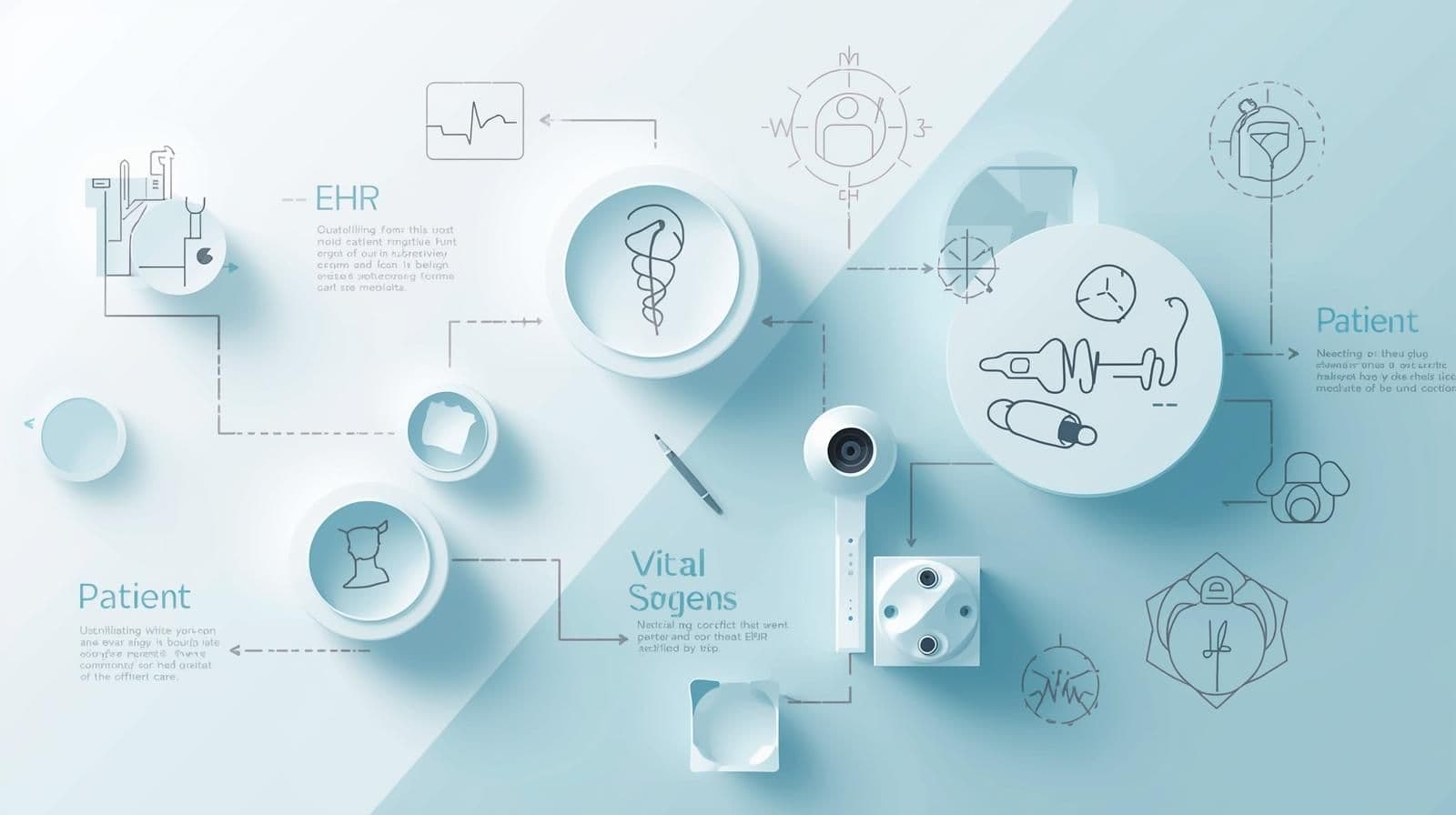How to Write a Medical Assistant Resume That Gets You Hired

How to Write a Medical Assistant Resume That Gets You Hired
Writing a medical assistant resume can feel tough, especially when you're trying to break into healthcare or move up in your career. After working in medical offices for years and seeing hundreds of resumes cross hiring managers' desks, I've learned what really works.
The healthcare field is different from other jobs. You can't use a basic resume template and expect good results. Medical assistant positions need specific skills and certifications that employers must see right away. Your resume isn't just a job list – it proves you can handle patient care, medical tasks, and the busy pace of a medical office.
As experts from Resume Builder point out, "As a medical assistant, you play a vital role in delivering quality care to patients. To generate opportunities, showcase achievements demonstrating your ability to communicate effectively with physicians, nurses, and patients in fast-paced health care environments."
Understanding the Medical Assistant Role
Before you start writing your resume, let's talk about what makes this job special. Medical assistants wear many hats. One minute you're taking vital signs, the next you're booking appointments or dealing with insurance claims. This variety is what I love most about the job, but it also makes writing a resume tricky.
Employers want to see that you understand both the clinical and office sides of healthcare. They're looking for someone who can switch between helping a nervous patient and managing electronic health records without missing a beat.
Key Parts of Your Medical Assistant Resume
Contact Info and Professional Summary
Start with the basics, but make them count. Your contact info should be current and professional. Skip the cute email addresses – stick with firstname.lastname@email.com.
Your professional summary is where you grab attention. In 2-3 sentences, tell employers who you are and what you bring to their practice. Here's what works:
"Certified Medical Assistant with 3 years of experience in family practice and pediatrics. Skilled in patient care, EHR management, and medical billing. Known for creating comfortable environments for anxious patients while keeping accurate medical records."
Notice how this summary mentions certification, experience, specific skills, and a soft skill that matters in healthcare.
Showing Your Clinical Skills
This is where your medical assistant resume differs from other jobs. Create a skills section that shows your clinical abilities. Group them in a way that makes sense:
Clinical Skills:
- Vital signs measurement
- Blood draws and injections
- EKG setup and testing
- Sample collection
- Patient prep for procedures
Office Skills:
- Electronic Health Records (Epic, Cerner)
- Medical billing and coding
- Insurance checks
- Appointment scheduling
- HIPAA compliance
According to Resume.org, "A strong resume doesn't just list duties but demonstrates your impact through quantifiable results, such as increasing lab efficiency or improving patient satisfaction scores."
Work Experience That Tells Your Story
When you describe your work experience, focus on what you achieved rather than just what you did. Instead of saying "Took patient vital signs," try "Accurately recorded vital signs for 50+ patients daily, helping with smooth patient flow and physician prep."
Use numbers when you can. Healthcare is data-driven, and employers like candidates who understand metrics. Did you help cut wait times? Improve patient satisfaction scores? Handle a certain number of calls per day? Include those details.

Common Resume Mistakes I've Seen
After looking at hundreds of medical assistant resumes, certain mistakes come up again and again. The biggest one? Forgetting to customize for each position. A resume for a kids' office should highlight different skills than one for a bone doctor's practice.
Another common error is listing old software or systems. Healthcare technology changes fast. If you learned a system that's no longer used, either update your skills or focus on skills that transfer.
Many applicants also don't realize how important soft skills are. Yes, technical abilities matter, but so does your ability to calm worried patients or work well with difficult coworkers.
Certifications and Education
Your education section should highlight relevant training clearly. If you're a Certified Medical Assistant (CMA) through AAMA or a Registered Medical Assistant (RMA) through AMT, put this info where employers can't miss it.
| Certification | Issuing Organization | Key Benefits |
|---|---|---|
| CMA (AAMA) | American Association of Medical Assistants | Nationally recognized, requires continuing education |
| RMA (AMT) | American Medical Technologists | Widely accepted, shows competency |
| CCMA (NHA) | National Healthcareer Association | Online testing available, quick certification |
If you're new to the field, highlight relevant coursework, clinical rotations, and any hands-on training. Even volunteer experience in healthcare settings can show your commitment to the field.
Tailoring Your Resume for Different Medical Areas
Here's something many job seekers miss – different medical areas value different skills. Working in heart medicine? Highlight your EKG experience and knowledge of heart conditions. Applying to a skin doctor's practice? Show any experience with minor procedures or cosmetic treatments.
I always tell people to research the practice before applying. Look at their website, understand their patient population, and adjust your resume accordingly. A family practice serving many elderly patients will appreciate experience with older adult care, while a practice with many young families might value pediatric skills.
Experts at Huntr note that "Developing a standout medical assistant resume is essential for capturing the attention of potential employers in the competitive healthcare field."
The Power of Keywords
Most medical practices use computer systems to screen resumes first. This means your medical assistant resume needs to include the right keywords to get past the initial screening.
Study the job posting carefully and use their exact words. If they mention "patient intake," use that exact phrase rather than "patient registration." If they want experience with a specific EHR system, make sure it's featured prominently if you have that experience.
As noted by Jobscan, resumes "need to be written with the correct skills, keywords, and format in mind."
Formatting for Success
Keep your format clean and professional. Healthcare is a conservative field, so save creative designs for other industries. Use clear headings, consistent formatting, and plenty of white space.
Length matters too. For most medical assistant positions, one page is enough unless you have lots of experience. Hiring managers are busy – they appreciate short, relevant information.
Healthcare recruiting experts at Cambay Healthcare emphasize that "choosing the right format, optimizing for ATS, and showcasing your skills" will help you "stand out in a crowded job market."
Common Questions About Medical Assistant Resumes
Should I include my GPA? Only if you're a recent graduate and it's 3.5 or higher. Otherwise, focus on practical experience and skills.
How do I handle gaps in employment? Be honest but brief. If you took time off for family reasons or health issues, a simple explanation is enough. Focus on any relevant activities during that time, like continuing education or volunteer work.
What if I'm changing careers? Highlight skills that transfer. Customer service experience translates well to patient interactions. Office experience shows you can handle the business side of healthcare.
According to ResumeTrick, "A great resume is the backbone of any medical assistant's job search. It is your opportunity to 'sell yourself' with the help of your choice of words and abilities."
Final Thoughts from the Field
Writing a strong medical assistant resume takes time and thought. Don't rush the process. Take time to think about your experiences and how they've prepared you for this role.
Remember that behind every resume is a real person with unique experiences and views. Your job is to help employers see how your background makes you the right fit for their team. Whether you're just starting out or have years of experience, focus on what you bring to patient care and practice operations.
The healthcare field needs dedicated, skilled medical assistants. With a well-written resume that shows your abilities and passion for helping others, you'll be well on your way to landing the position you want. Remember, as healthcare skills experts note, you need "both hard skills (e.g., medical terminology, patient assessment) and soft skills (e.g., communication, empathy)" to succeed in this field.
For more detailed examples and templates, check out these helpful resources: Resume Builder's Medical Assistant Examples and Resume.org's 2025 Templates.